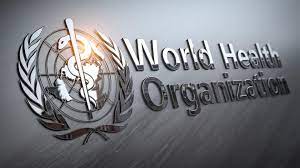
The World Health Organisation (WHO) has called on Nigeria to increase public health spending to at least 20% of total health expenditure to strengthen its healthcare system and improve population health.
WHO Regional Director, Mohamed Janabi, made the call in Abuja during the ongoing National Health Financing Dialogue, themed “Reimagining the Future of Health Financing in Nigeria”.
Janabi stressed that sustainable healthcare financing is the backbone of resilient health systems, noting that increased investment would help reduce out-of-pocket expenses, protect households, and strengthen pooling and prepayment mechanisms.
He also emphasised the need for evidence-based decision-making to guide fair and efficient resource allocation, including cost-effectiveness and equity analyses.
Commending Nigeria’s recent health sector reforms, Janabi described them as timely and commendable.
“With more than 223 million citizens, how the country finances health is vital for the well-being of its people and the future of the continent. Healthier populations are more productive, more resilient to shocks, and better positioned to drive inclusive growth,” he said.
Janabi highlighted Nigeria’s Basic Healthcare Provision Fund, the National Health Insurance Authority (NHIA) Act, and the expansion of state-level insurance schemes as positive steps towards achieving universal health coverage.
He also pointed to equity and investment units and parliamentary engagement through the Legislative Network for Universal Health Coverage as innovative models that could inspire other African countries.
Similarly, the Commissioner for Health, Humanitarian Affairs, and Social Development at the African Union Commission, Amma Twum-Amoah, stressed the need for Africa to prioritise health security by leveraging its abundant resources.
She noted that robust health systems, supported by the African Medicines Agency and strong regulatory frameworks, are essential to help the continent withstand future pandemics, floods, and droughts.



